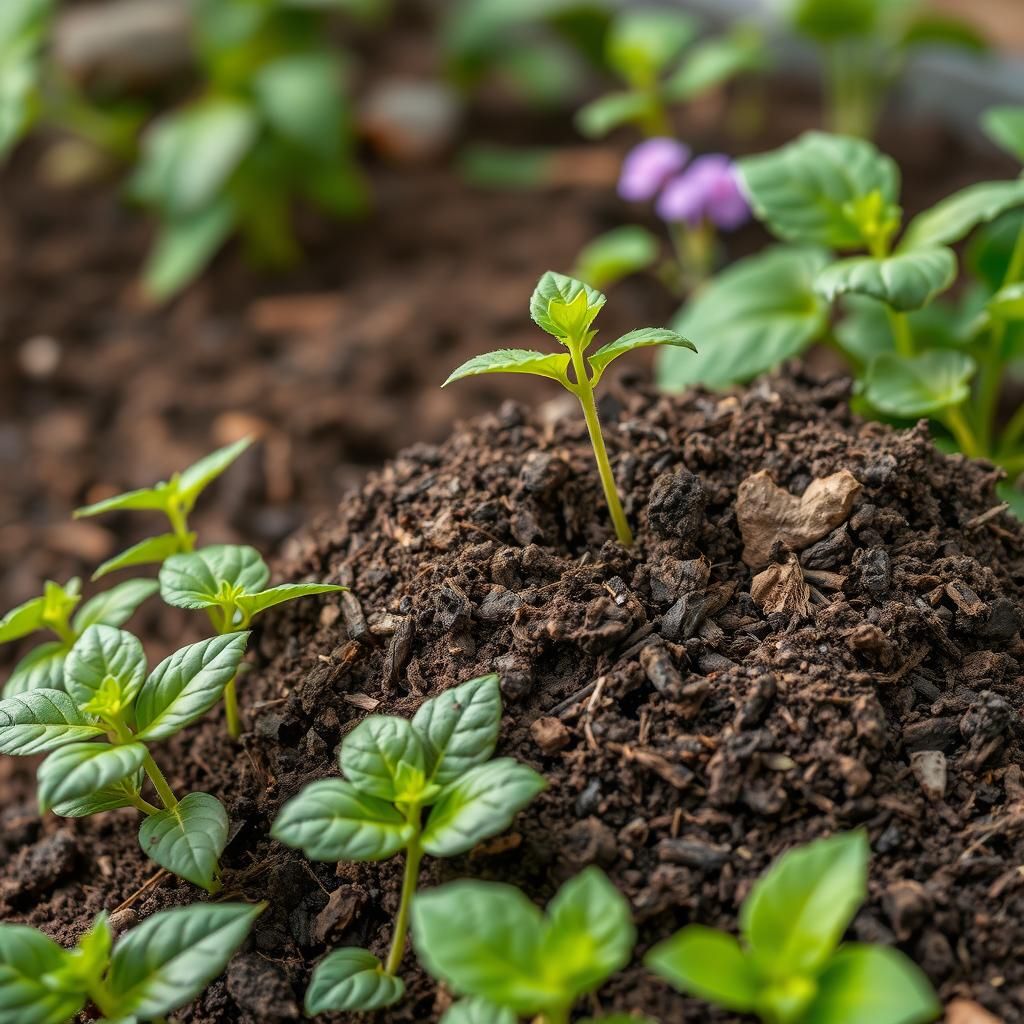Which Plants Don't Like Compost? Discover the Best Options for Your Garden

When it comes to gardening, the use of compost is often hailed as a secret weapon for healthy plant growth. However, not all plants thrive in the nutrient-rich environment that compost provides. Some species may suffer from over-fertilization or specific soil conditions that compost can introduce. Understanding which plants dislike compost is crucial for gardeners who want to optimize their plant selection and ensure a flourishing garden. This article explores the plants that are best avoided when it comes to compost application, offering valuable insights for cultivating a vibrant and healthy garden ecosystem.
Which Plants Don't Like Compost?
Many gardeners may not realize that some plants can actually be adversely affected by the addition of compost to their soil. Certain species, particularly those that prefer poor or well-drained soils, might suffer from an excess of nutrients that compost brings. For instance, plants like carnivorous species and those that thrive in acidic conditions, such as blueberries and rhododendrons, might struggle when compost is introduced due to the change in pH levels and nutrient composition. It’s essential to consider the specific needs of each plant before incorporating compost into their growing environment to ensure optimal health and growth.
1. Carnivorous Plants
Carnivorous plants, such as Venus flytraps and pitcher plants, thrive in nutrient-poor environments. The introduction of compost, which is rich in organic matter and nutrients, can lead to their decline. These plants have adapted to capture insects for their nutrient intake, so adding compost can disrupt their unique ecological adaptations and negatively impact their overall health.
2. Blueberries
Blueberries prefer acidic soil with a pH range of about 4.5-5.5. The organic matter in traditional compost may raise the soil pH, making it less favorable for these plants. Additionally, the high levels of nutrients in compost can lead to poor fruit development and overall plant vigor, making it crucial to amend soil with materials that maintain their preferred acidity.
3. Rhododendrons
Similar to blueberries, rhododendrons thrive in acidic soils, and adding compost can alter the pH levels adversely. These plants rely on the unique soil chemistry of their natural habitats, and an increase in nutrients or a shift in soil structure caused by compost can impede their growth and flowering capability.
See also:
4. Alpine Plants
Alpine plants are adapted to thrive in poor, well-drained soils found at high elevations. When exposed to nutrient-rich compost, these plants may struggle, as the change in soil quality can lead to issues like root rot and over-fertilization. Maintaining the natural soil conditions that these plants prefer is vital for their success in cultivation.
5. Cacti and Succulents
Cacti and succulents thrive in dry, nutrient-poor environments, and the addition of compost can lead to overwatering issues and decreased drainage. The organic matter in compost retains moisture, which can be detrimental to their health. For these plants, it's essential to use well-draining soils specifically designed for arid conditions, avoiding compost altogether.
| Plant Type | Reason for Avoiding Compost |
|---|---|
| Carnivorous Plants | Need nutrient-poor conditions |
| Blueberries | Prefer acidic soil; compost raises pH levels |
| Rhododendrons | Thrive in acidic soil; compost alters pH |
| Alpine Plants | Adapted to poor soils; compost can lead to root rot |
| Cacti and Succulents | Prefer dry, well-drained conditions; compost retains moisture |
Understanding Plants That Thrive Without Compost
Certain plants have developed specific adaptations that allow them to thrive in nutrient-poor conditions, making them less dependent on compost. For example, native species often prefer their natural soil environments, which are sometimes too rich or altered by synthetic materials, such as compost. Additionally, some acid-loving plants, like blueberries and azaleas, thrive in soils with lower pH levels and may become stunted or unhealthy when subjected to high-nutrient compost mixes. Understanding these plants and their environmental needs is crucial for gardeners aiming for optimal growth without compromising on soil health.
Plants That Prefer Poor Soil Conditions
Certain plants, such as lavender and sage, are known for their preference for poor soil conditions. These plants have evolved to thrive in well-draining, rocky, or sandy soils where nutrients are scarce. Adding compost to their environment can lead to excessive moisture retention, which may cause root rot and other issues. By understanding their natural habitat, gardeners can provide optimal conditions for these drought-tolerant species.
Acid-Loving Plants That Dislike Compost
Blueberries and rhododendrons represent some of the acid-loving plants that do not favor compost, especially when made from alkaline materials. These plants require a specific pH level to thrive, typically between 4.5 and 5.5. When compost raises the soil's pH beyond optimal levels, it can lead to nutrient deficiencies and growth problems. Therefore, using pine needles or sphagnum moss as mulch may better serve these plants by helping maintain their preferred acidity.
See also:
Cacti and Succulents: The Low Nutrient Lovers
Cacti and succulents are specially adapted to survive in arid climates with minimal nutrient input, making them unsuitable for compost. Their roots prefer fast-draining soil that doesn’t hold moisture, and the rich nutrients in compost can interfere with their water uptake. Instead, a gritty mix comprised of sand or perlite is recommended, allowing these hardy plants to thrive in a nutrient-scarce yet well-drained environment.
Plants Susceptible to Over-Fertilization
Some ornamental plants, like hostas and ferns, can be particularly sensitive to the excessive nutrients found in many types of compost. While these plants often benefit from organic amendments, too much compost can lead to over-fertilization, causing stunted growth or even plant death. Ensuring these plants are given just the right amount of nutrients through targeted treatments is essential for their health and longevity.
Benefits of Choosing Native Plants for Your Garden
Opting for native plants in your garden can lead to a lower dependence on compost, as these species are naturally suited to the local environment. They have adapted to the specific soil types, moisture levels, and climatic conditions of their region, which often means they thrive without additional nutrient inputs. By cultivating native plants, gardeners are not only promoting biodiversity but also creating sustainable gardens that require less maintenance and fewer resources.
Questions from Our Readers
Which plants are sensitive to compost?
Many plants such as carnivorous species (like Venus flytraps and pitcher plants) don't thrive in compost due to their specific nutrient requirements. Compost can lead to an excess of nutrients which can be detrimental to their growth.
Can all types of compost harm plants?
Not all types of compost will harm all plants, but generally, hot composts can generate high temperatures that may be harmful to sensitive plants. It's essential to select the right compost for your plant's specific needs.
See also:
Which vegetables prefer poor soil over compost?
Certain vegetables, such as root crops like carrots and parsnips, often prefer poor soil as it encourages the development of a better root structure. Where compost could lead to excessive growth of foliage rather than roots, these plants thrive in leaner conditions.
Are there any herbs that dislike compost?
Some herbs like sage and rosemary prefer well-draining, poorer soil rather than rich compost, which can promote excessive moisture and lead to root rot. Therefore, they often do best in minimal-nutrient environments.

If you want to read more articles like Which Plants Don't Like Compost? Discover the Best Options for Your Garden, we recommend you check out our Plants category.
Leave a Reply
Related Articles